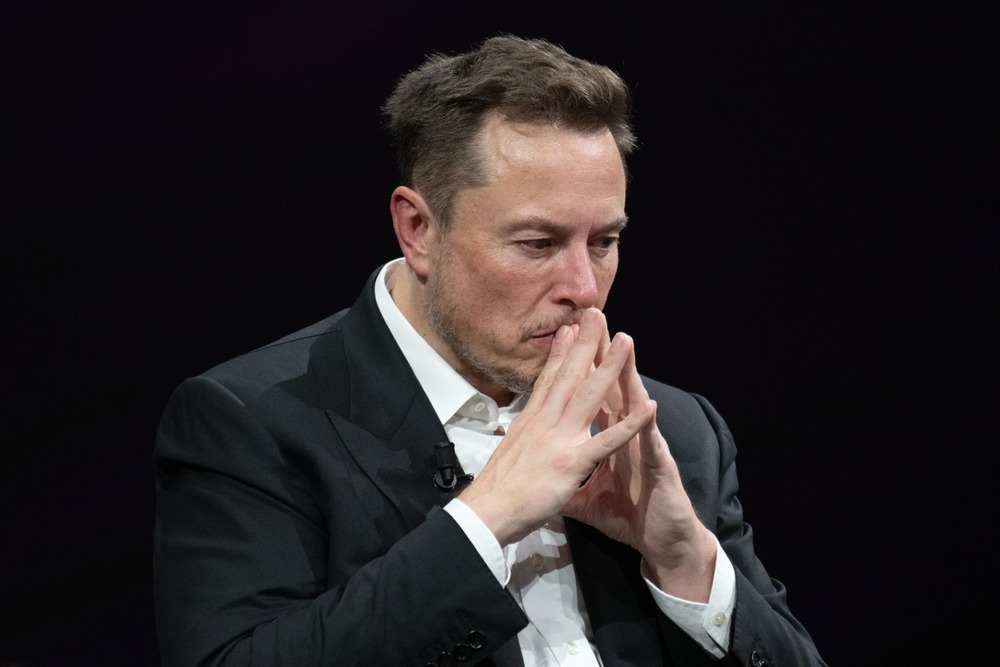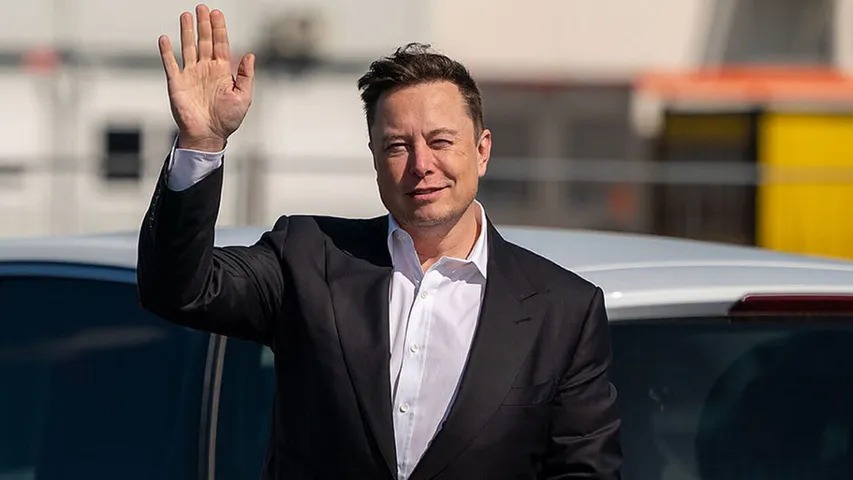Imagine losing $29 billion in a single day. That’s more than the GDP of entire countries like Iceland or Madagascar—vanishing in mere hours. For most, such a loss is unfathomable, but for Elon Musk, it’s a stark reminder of just how volatile billionaire wealth can be.
Useful home itThe Tesla and SpaceX chief, known for his bold ventures and unfiltered social media presence, saw his fortune take a massive hit after a sharp decline in Tesla’s stock. While the billionaire remains one of the wealthiest people on the planet, the sheer scale of this financial plunge has sparked widespread discussion. How did it happen? And, more importantly, how does Musk himself feel about it?
As markets fluctuate and investors react, the latest dip in Musk’s net worth raises bigger questions—not just about Tesla’s future but about the unpredictability of the tech industry itself.

What Led to the Massive Loss?
Elon Musk’s staggering $29 billion loss wasn’t the result of a single event but rather a combination of factors, primarily tied to Tesla’s stock performance. The electric vehicle giant saw a sharp decline in its share price, erasing a significant chunk of Musk’s net worth, which is largely tied to his Tesla holdings. While Musk remains one of the richest individuals in the world, such a dramatic fluctuation highlights the volatility of stock-based wealth. Unlike traditional income streams, billionaire fortunes often hinge on the market’s reaction to economic conditions, investor sentiment, and corporate performance. This time, it was Tesla’s recent struggles that triggered the financial setback.
One of the biggest concerns for investors has been slowing demand for Tesla vehicles. Once the undisputed leader in the electric vehicle market, Tesla now faces fierce competition from emerging EV manufacturers, particularly in China, where companies like BYD are gaining ground. Tesla has responded with aggressive price cuts in multiple markets, attempting to maintain sales momentum, but these discounts have raised concerns about shrinking profit margins. Investors are questioning whether the company’s long-term strategy is sustainable or if it signals deeper issues with demand. Additionally, delays in the rollout of next-generation Tesla models, including the highly anticipated Cybertruck, have added to the uncertainty.
Beyond Tesla-specific concerns, wider market trends have also played a role in Musk’s financial loss. The tech sector as a whole has seen increased volatility, with rising interest rates and economic uncertainties making investors more cautious. Higher borrowing costs can make it more difficult for tech companies—especially those with ambitious growth plans like Tesla—to secure funding and maintain expansion. On top of that, regulatory scrutiny in various countries regarding Tesla’s autonomous driving technology and safety standards has added another layer of risk, further shaking investor confidence.
While Tesla’s stock has seen dramatic swings before, this latest downturn raises important questions about the company’s trajectory. Is this just another temporary setback in the ever-turbulent world of tech stocks, or does it signal a more significant shift in how investors view Tesla’s future? As the market reacts and analysts weigh in, all eyes remain on Musk and his next move.
Musk’s Reaction: A Glimpse Into His Mindset
Elon Musk is no stranger to financial turbulence, but losing $29 billion in a single day is enough to rattle even the most seasoned billionaire. His reaction? A mix of stoicism, defiance, and an air of nonchalance—a familiar pattern for the Tesla and SpaceX CEO, who has built a reputation for brushing off setbacks with humor and bold statements.
Following the dramatic plunge in Tesla’s stock, Musk took to his usual platform, X (formerly Twitter), where he responded in a typically Muskian fashion. While he didn’t issue an outright statement of concern, his engagement with posts related to Tesla’s market performance suggested that he was aware of the buzz. In the past, Musk has often downplayed such losses, emphasizing that stock price volatility is inevitable and that long-term innovation matters more than short-term fluctuations. However, given that Tesla’s valuation has been under increasing scrutiny, the latest drop may carry more weight than previous dips.
This isn’t the first time Musk has faced significant financial setbacks. He has endured multiple crashes in Tesla’s stock value, cryptocurrency investments, and even personal financial losses tied to controversial decisions—yet he continues to project an unshaken confidence in his vision. Whether this is a carefully crafted persona to reassure investors or a genuine reflection of his risk-taking mentality, it’s clear that Musk views losses as temporary obstacles rather than definitive failures.
However, as Tesla grapples with slowing demand, increased competition, and regulatory pressures, even the most confident leaders must acknowledge the challenges ahead. Musk’s reaction, though subdued, leaves the bigger question unanswered: Is this just another bump in the road, or a sign that Tesla’s dominance is beginning to wane?

How Tesla and Musk Have Handled Setbacks Before
Elon Musk’s career has been defined by the highs and lows of groundbreaking innovation, and his company, Tesla, has often faced significant challenges on its journey to becoming the global leader in electric vehicles. This most recent financial setback—losing $29 billion in a single day—is just one of many turbulent moments Musk has encountered throughout his career. Yet, time and again, he has demonstrated an uncanny ability to bounce back from adversity, often with even greater success than before.
Tesla’s rise to prominence was hardly a smooth ride. In the early years, the company faced multiple crises, including production delays, financial troubles, and skepticism from both investors and the public. In fact, there were moments when Tesla came close to bankruptcy. But Musk remained relentless, pouring much of his own fortune into the company and navigating through these rough waters with a vision of the future that few others could see. His bold moves, like taking Tesla public despite the risks, proved to be visionary, and over time, those early financial losses were transformed into massive gains as Tesla’s stock skyrocketed.
Musk’s ability to handle setbacks is not limited to Tesla’s struggles. He has also faced significant challenges with SpaceX, his space exploration company. At one point, SpaceX launched several failed missions that could have spelled the end for the company. Yet, Musk’s resilience and refusal to give up on his vision allowed him to secure funding and eventually achieve the company’s groundbreaking success in private space travel. The same mentality is at play today with Tesla. While this recent stock drop is significant, it’s unlikely to deter Musk from continuing his mission to revolutionize transportation.
Public Reactions and Internet Buzz
As expected, the massive financial loss Elon Musk experienced sparked a whirlwind of reactions, particularly on social media. From memes to memes to sharp commentary from financial analysts, the internet didn’t hold back. For many, Musk’s $29 billion loss became the latest subject of public fascination—a reminder that even the wealthiest individuals are not immune to the unpredictable nature of the market.
On platforms like Twitter, memes about Musk’s latest financial stumble quickly went viral, with users poking fun at his sudden dip in fortune. These humorous takes reflected a broader sentiment among internet users—an ongoing fascination with Musk’s wealth and his larger-than-life persona. In many ways, Musk’s wealth has become a cultural touchpoint, and a sharp loss like this only adds fuel to the fire. Whether it’s photos of Musk with exaggerated sad expressions or quips about how “he can’t afford his next Tesla,” social media users have had a field day making light of the situation. It’s a reminder of just how much Musk’s public persona intertwines with his financial standing in the eyes of the public.
Meanwhile, financial analysts and market experts have also weighed in on Musk’s loss, offering a more serious take on the implications for both Tesla and the broader market. Some have pointed out that while the drop is substantial, it’s not entirely unexpected given the volatility in the tech and EV markets. Analysts note that Musk’s net worth is heavily dependent on stock values, and while a $29 billion loss is eye-catching, it’s not out of the ordinary in an environment where tech stocks are swinging wildly. Others, however, have raised concerns about how much longer investors will be willing to accept the market volatility surrounding Tesla, especially given the intense competition in the electric vehicle market.

A Momentary Setback or a Sign of Change?
Elon Musk’s $29 billion loss is undoubtedly a staggering figure, but in the grand scheme of his career, it may simply be another blip on the radar. Over the years, Musk has faced numerous challenges—some financial, some technological—and each time, he’s emerged with an even stronger resolve. His ability to weather financial storms and stay focused on long-term goals has defined his rise to prominence, and there’s little reason to believe this latest setback will derail his broader ambitions.
The true significance of this loss lies not in the immediate shock of it but in how Musk reacts to it in the coming months. Will this be a temporary dip that is quickly forgotten, or will it serve as a pivotal moment for Musk, Tesla, and the broader tech market? Only time will tell. But what’s clear is that Musk’s ability to navigate the turbulence of the market with unwavering confidence continues to inspire both admiration and criticism.
As the world watches, this financial loss may ultimately serve as just another chapter in Musk’s ever-evolving story—a reminder that even the wealthiest and most innovative leaders face challenges. For Musk, the journey is far from over, and his next move could reshape the future of tech once again. Whether this marks a new chapter of resilience or a deeper shift in market dynamics, one thing is certain: Elon Musk’s story is anything but predictable.
